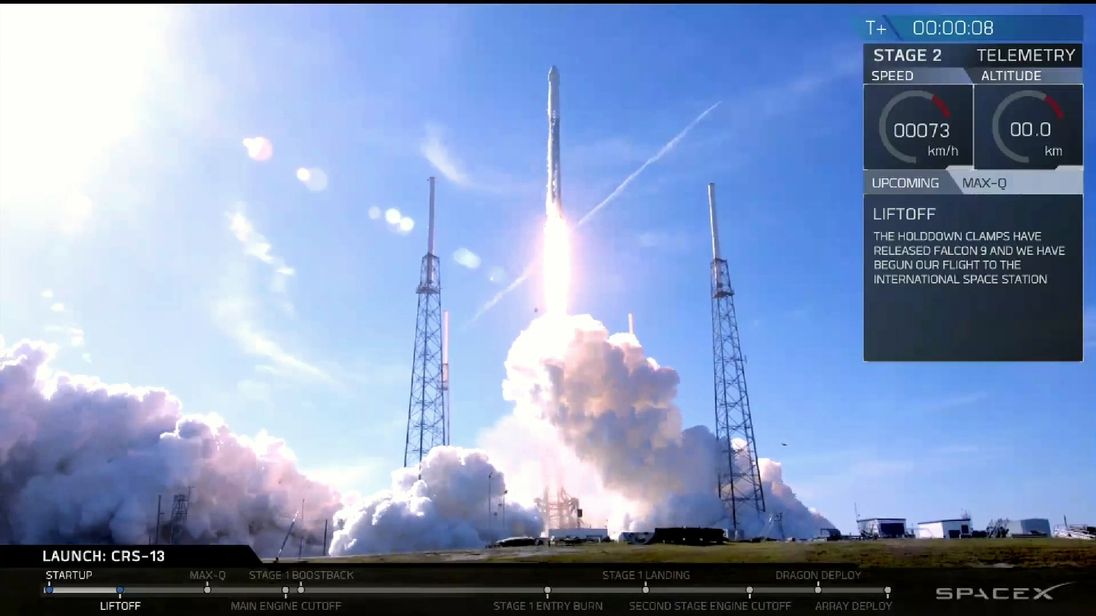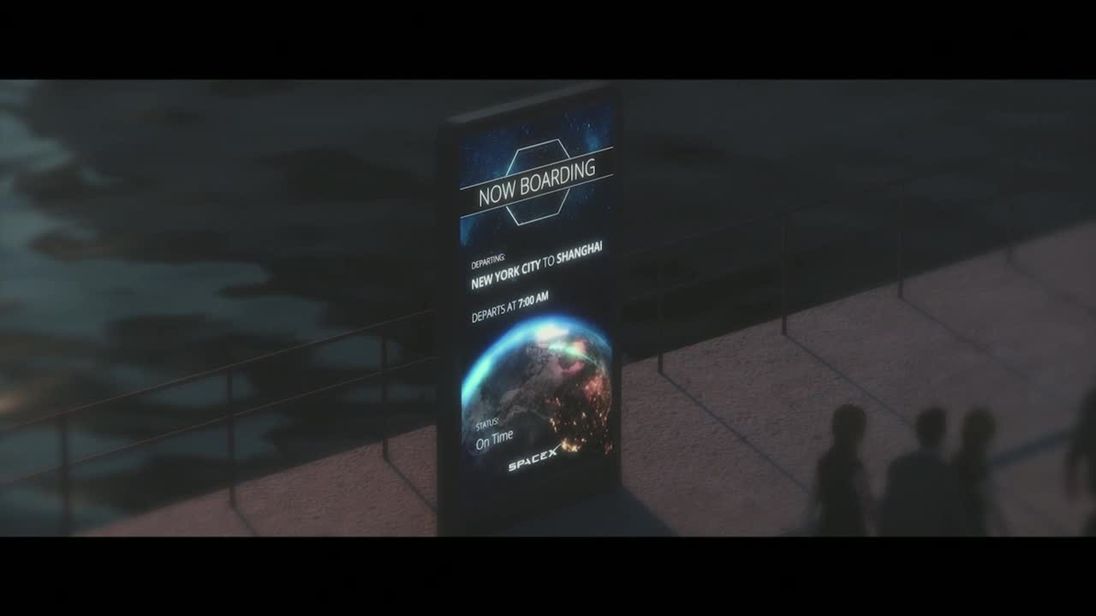We are witnessing the second space race.
This time it's not a cold-war battle between nations, but a commercial contest between private companies.
And the stakes are about to be raised further with the launch of the Falcon Heavy, the biggest rocket since the mammoth Saturn V that took astronauts to the moon.
For the space industry it's a game-changer.
The maiden flight has all the panache you'd expect from SpaceX and its founder, Tesla boss Elon Musk.
On board is an red electric roadster, complete with a mannequin called Starman in the driver's seat, which will be sent on a trajectory that puts it in orbit around the sun.
Musk has a sense of humour as well as money.
The launch leaves Blue Origin trailing in the new space race.
The spaceflight company started by Amazon boss Jeff Bezos has been shuttling cargo to the International Space Station.
And it hopes to fly crew to the ISS from next year. But for now it's being well beaten.
The third contender in the race is Richard Branson's Virgin Galactic. Forced to redesign its spacecraft after a fatal accident, it's still a long way off commercial flights.
SpaceX has been in the lead for some time.

The first commercial flight to the ISS, and the first to re-use the first stage of a rocket that had already delivered a payload to orbit.
A successful test flight for the Falcon Heavy will see SpaceX chalk up another first: all three cores, with their massive engines, will attempt to touchdown on separate landing pads for use in a future launch.
It's the reusability of the Falcon Heavy that makes it so attractive for commercial flights, keeping the cost of a launch down to a mere $90 million (£64 million).

The next most powerful rocket, the Delta IV Heavy, can put about half as much in orbit for four times the price.
With the money companies save on launching their cargo on a Falcon Heavy they could buy another satellite.
No surprise then that the SpaceX rocket has been booked to launch several large communications satellites and a test payload for US Air Force. More orders will doubtless follow.
But Elon Musk wants to go further. By the end of the year he wants to send two paying passengers around the moon.
More from SpaceX
Competition is leading to innovation. That's what's needed to take humans to Mars.
The space race is picking up speed. And it's getting exciting.
[contf] [contfnew] 
Sky News
[contfnewc] [contfnewc]






